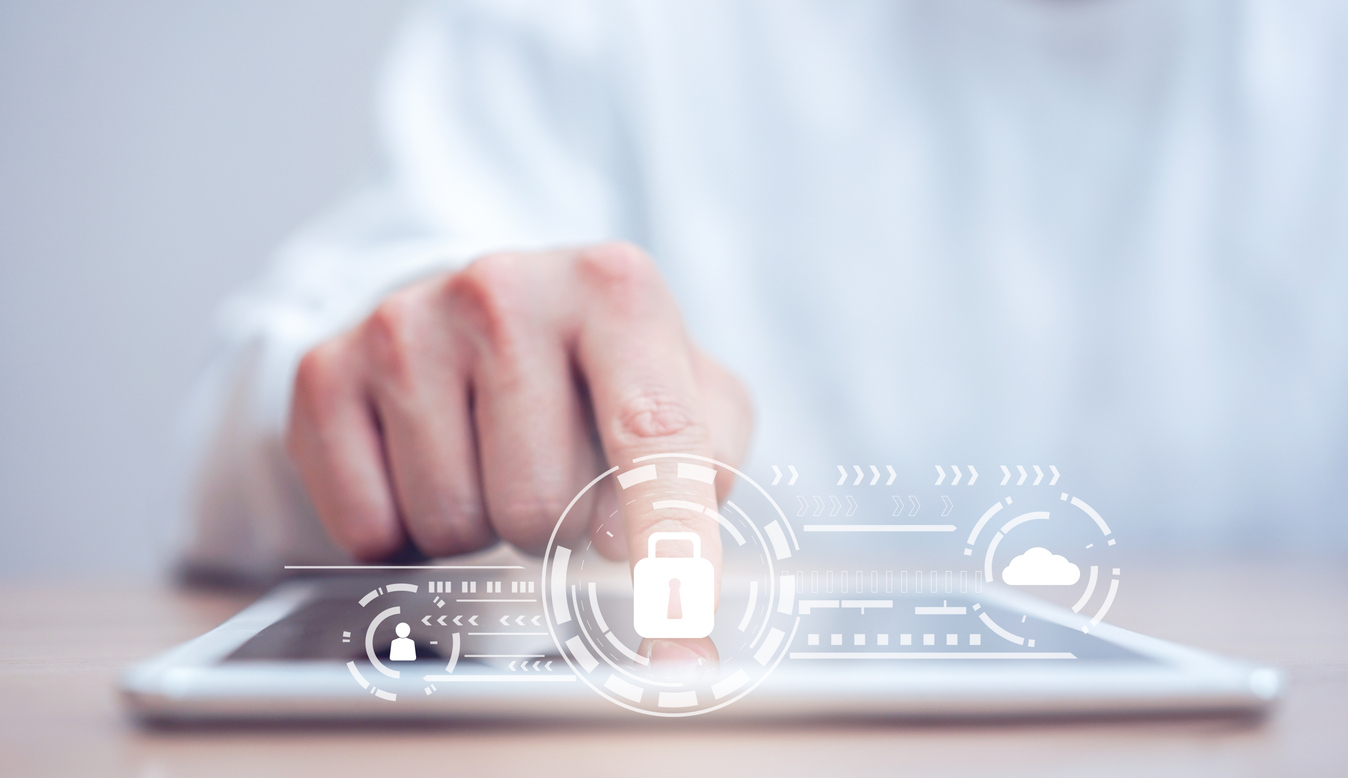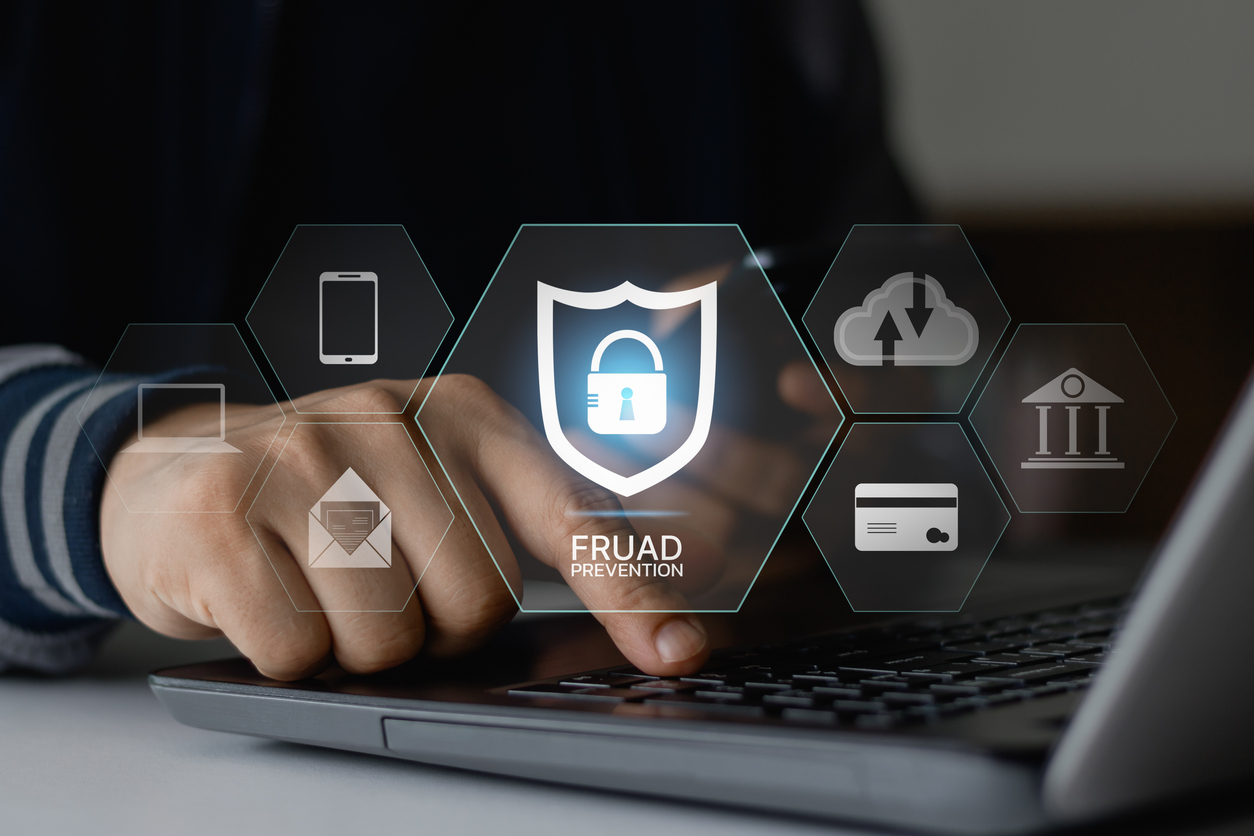Security and Fraud Prevention
If you believe you have been a victim of fraud, please contact us immediately at 1-800-996-0213.
Consumers increasingly rely on computers, web-enabled devices, and the internet for everything from shopping and communicating to banking and bill-paying. While there are a number of benefits of using web services — faster and more convenient services, bank customers should also be aware of the risks. Learn how to better shield yourself and your business from cybersecurity, identify theft, and fraud.
Committed to Your Security
Esquire Bank will never ask our customers for account numbers, PINs, or social security information. If you receive a message asking for sensitive information from Esquire Bank, do not reply or continue corresponding – call the bank immediately at 1-800-996-0213. We will only contact you in the event of transaction-related issues (e.g., insufficient funds, unpaid balances, or suspicious activity notices). Esquire Bank employees will only contact you via our @esqbank.com email address.
Guarding Against Fraud and Cyber Risks
Fraud Alerts
Our online banking has a variety of alerts and tools that help keep you informed. You can create alerts based on dollar amounts or transaction types on any of your online banking accounts. Receive alerts via secure message, email, phone or SMS/text.

Multi-Factor Authentication / Login Security
Use multi-factor authentication (MFA) to prevent unauthorized access to your accounts and private information. For business accounts with Esquire Bank, you cannot save login information in the browser to ensure added security for you and your clients. Where available, use MFA which is most secure with a hardware token or phone application. At a minimum, enable MFA for your email, mobile device, financial and business websites, password manager, cloud file storage, and social media accounts. Business Accounts cannot save login information in the browser. We do this to ensure added security.

Positive Pay
(for Business Accounts)
Positive Pay and Payee Match, part of our cash management suite, mitigates potential check fraud in its tracks. These services evaluate each check by payee, dollar amount, and check number to ensure they haven’t been altered through check-washing or other forms of fraud.
Positive Pay protects against altered, counterfeit, and forged checks, providing peace of mind when you issue checks to clients. Simplified fraud alerts keep you informed and help maintain your security.
Our Positive Pay system offers a robust defense against check and ACH fraud. It allows you to review and approve checks and ACH transactions before they are processed, significantly reducing the risk of unauthorized transactions.
To get more information regarding Esquire Bank’s Positive Pay please call 800-996-0213 or email us at retailops@esqbank.com.

Phishing
Phishing occurs when someone presents themselves as a familiar entity or authority, such as a government agency, your bank, or a familiar company, in an effort to get you to reveal sensitive information like account numbers, passwords, and debit card details. Phishing attempts can be conducted through phone calls, emails, or text messages.
To identify phishing, check the sender’s email address and hover over any URL links without clicking them, as these can be spoofed to direct you to unauthorized sites. Be wary of urgent or intimidating language, spelling and grammatical errors, and generic greetings.
If you receive a suspicious email, phone call, or text message, do not click any links, provide any information, or download attachments. Instead, reach out to your financial or business representative or call the company directly to verify the request. If you have already provided information, contact Esquire Bank immediately.

Malware and Ransomware
Malware is a malicious form of software that hackers will attach to an email or present in a pop-up or threatening message on a website. Malware can track your keystrokes, modify or delete files, slow your machine, and install other programs.
To combat phishing and malware risks, be extra vigilant and ensure messages are from legitimate sources. Beware of urgent messages designed to rush you into mistakes. Be suspicious of emails asking you to check or renew passwords, even if they seem to come from a trusted source. Avoid clicking on suspicious links or opening attachments. Don’t trust email communications for important requests, as spoofed emails are becoming more common. Always confirm important requests in person or via a verified phone number. For the best security and performance, please ensure your operating system is up to date and that you are using reliable security software.
If you receive urgent requests for money, especially through wire transfers or gift cards, and suspect fraud involving your Esquire Bank accounts, contact us immediately at 800-996-0213.

Corporate Account Takeover (CATO)
A Corporate Account Takeover (or CATO attack) happens when cyber thieves obtain employee credentials and information and use it to gain access to your company’s accounts and private information…and the accounts and private information of your clients. CATO attacks often happen when an employee unwittingly downloads malware or leaves sensitive details unguarded.

Best Practices for Businesses
In today’s digital world, protecting your business from cyber threats and fraud is crucial. Data breaches and unauthorized access can disrupt operations, damage your reputation, and lead to significant financial losses. Here are some key best practices to help you maintain a secure and reliable business environment:
-
- Work-Only Use of Machines: Encourage employees to use work devices exclusively for business purposes. Personal activities can introduce vulnerabilities like malware and phishing attacks.
- Strong Policies and Regular Training: Implement robust policies for email use, social media engagement, and password management. Regular training sessions ensure employees understand and follow these policies, staying vigilant against threats. Use strong, unique passwords and change them frequently.
- Regular Security Testing: Empower your IT department to conduct regular security tests, such as phishing email tests, to assess employees’ readiness and system security. These tests help identify weak points and improve awareness.
- Multi-Channel Verification: For sensitive requests, like data access or funds transfers, always confirm through a separate communication channel, such as a phone call or face-to-face meeting. This prevents unauthorized actions and ensures legitimacy.
- Free Fraud Tools: Utilize the free fraud tools offered by Esquire Bank to add an extra layer of protection and stay ahead of potential threats.
- Verbal Verification for Wire Transfers: Always verify wire transfer details verbally, not just through email, to reduce the risk of unauthorized transactions and financial loss.
- Frequent Monitoring of Bank Statements: Encourage employees to monitor bank statements frequently for any suspicious activity. Prompt reporting of unusual transactions can help address issues before they escalate.
- Device and Software Updates: Keep all devices and computers updated with the latest virus and software protection. Regular updates are crucial to guard against new threats.
- Multi-Factor Authentication (MFA): Implement and require two-factor authentication for all business accounts. This adds an extra layer of security, making it much harder for unauthorized individuals to gain access.
By following these best practices, you can create a more secure environment for your business and protect your valuable data and assets. For additional resources and information, visit the FTC’s guide to business scams.

Personal Security
To effectively protect your personal information from hackers and fraudsters, integrate these practices into your daily digital routine:
-
- Strong Password Management: Create passwords that are long and easy to remember rather than complex and hard to recall. Use a mix of uppercase and lowercase letters, numbers, and symbols, aiming for at least 15 characters. Avoid using the same password across multiple services to prevent cross-service vulnerabilities, especially if one is compromised. Regularly update your passwords following notifications of security breaches and consider using a password manager to maintain strong password hygiene.
- Smart Email Usage: If your primary email is overwhelmed with marketing messages and other non-essential communications, open a second email account for important, one-on-one interactions. This strategy keeps your vital communications separate and reduces exposure to phishing and spam. Enable two-factor authentication on your email accounts to add an extra layer of security, making it harder for hackers to gain unauthorized access.
Phishing Awareness: Stay vigilant against phishing attempts, which often originate from deceptive email addresses and entice you to click on malicious links. Always verify the authenticity of the sender and the link before engaging. If using a mouse or trackpad, hover over links to preview their destination and ensure they lead to familiar and expected.

Need Immediate Help?
I think a scammer is targeting me or my business…
- If the scammer is using Esquire Bank’s name, branding or any other information, please contact us directly at 1-800-996-0213.
- If the scammer is using another means to try and target you, reach out to Esquire Bank, your local law enforcement agency or the FTC.
- Gather as many records of fraudulent transactions, phishing emails, and correspondences as possible to demonstrate what has been occurring.
- Get information on how to spot and recover from scams – use the FTC “Report a Scam” tool to figure out the best way to report fraud or abuse.
I lost my debit card…
- If your Esquire Bank MasterCard® debit card, and/or PIN is lost, stolen, or misused, immediately notify Esquire Bank.
- Call 1-800-996-0213 during normal business hours. During non-business hours you may call 1-800 554-8969. Or write us at 100 Jericho Quadrangle, Suite 105, Jericho, NY 11753 immediately to limit your liability.
- Also, be sure to contact Esquire Bank immediately if you believe a transfer has been made using the information from your account without your permission.
I got a suspicious email, text message, or call from someone claiming to represent Esquire Bank…
- Contact us immediately at 1-800-996-0213.
- Please keep a copy of the message so that we can see/reference that material against our own and against future complaints from other customers and clients.
- Remember, we will never contact you and ask for your personal or business account information.
Additional Resources
- Cyber Security Resources from FDIC.gov
- FTC – Federal Trade Commission
- IC3 – the FBI’s Internet Crime Compliant Center for victims of a scam or fraud scheme
- FBI – Federal Bureau of Investigation




